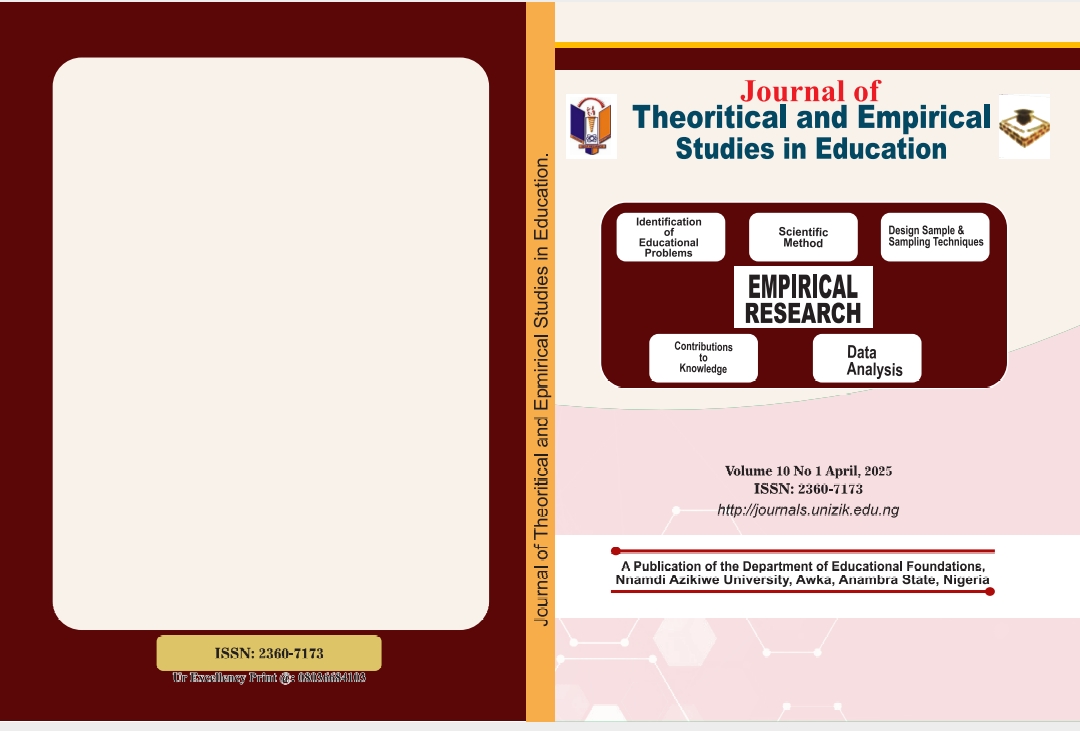DIGITAL LITERACY AND TEST ANXIETY AS PREDICTORS OF STUDENTS’ SATISFACTION WITH COMPUTER-BASED EXAMNATONS, IN TERTIARY INSTITUTIONS IN ANAMBRA STATE, NIGERIA.
Keywords:
Digital Literacy, Test Anxiety, Satisfaction with Computer-Based Examinations, Tertiary InstitutionsAbstract
This study investigated digital literacy, and test anxiety as predictors of undergraduate students’ satisfaction with computer-based examinations (CBE). Five research questions and two hypotheses were formulated to guide the study. Correlational survey research design was adopted for the study. The population of the study comprised of 12,776, 200-level regular undergraduate students drawn from public tertiary institutions in Anambra state out of which 810 students were sampled through multistage sampling procedure. Digital Literacy Test (DLT), Test Anxiety Questionnaire (TAQ) and Satisfaction with Computer-Based Examination Questionnaire (SCBEQ) were used to collect data. DLT, TAQ and SCBEQ were validated by three experts. The reliability was determined using Kuder-Richardson formula 20 for DLT and Cronbach alpha method for TAQ and SCBEQ and coefficients of .70, .74 and .70 were obtained respectively. Data collected were analyzed using Pearson Product Moment Correlation, linear and multiple regression. In testing the hypotheses, a p-value of less than 0.05 was deemed significant. The findings of the study revealed that digital literacy and test anxiety scores are joint predictors of undergraduate students’ satisfaction with computer-based examination. It was also revealed that digital literacy did not significantly predict 200-level undergraduate students’ satisfaction with computer-based examination
but test anxiety significantly predicted 200-level undergraduate students’ satisfaction with computer-based examination. The findings of the study revealed that digital literacy and test anxiety scores contributed .50% variance in 200-level undergraduate students’ satisfaction with computer-based examination. It was recommended among other things that Government should equip tertiary institutions’ libraries and laboratory with digital literacy tools for students’ use.




